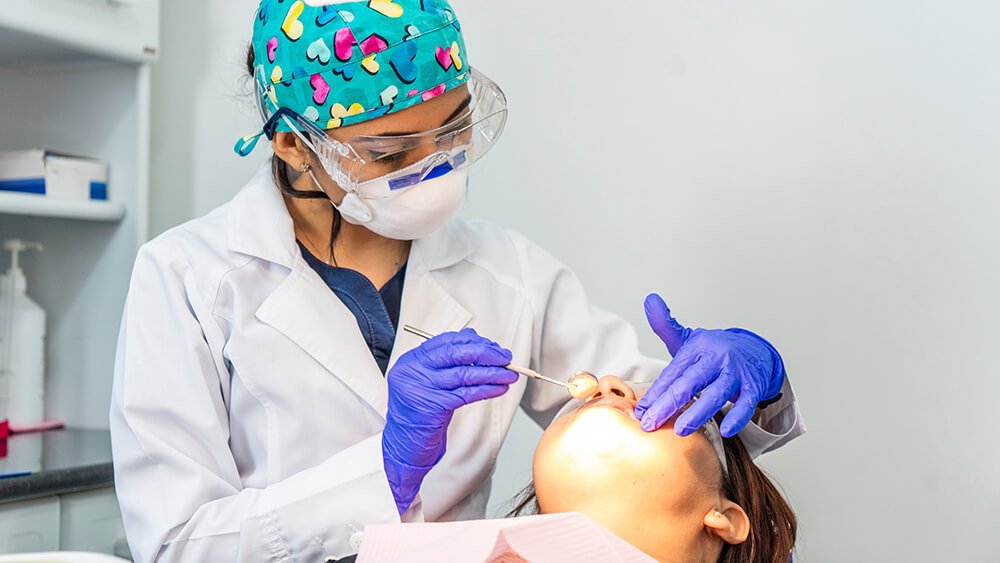DDS vs DMD: What’s the Difference in Dental Degrees?
Introduction to DDS vs DMD
Have you ever noticed that some dentists have DDS after their names, while others have DMD? If you’ve wondered what these titles mean and how they differ, you’re not alone. Many patients assume that one degree is superior to the other, but in reality, DDS vs DMD means the same thing—both degrees qualify a dentist to provide comprehensive oral health care.
At OTD Dental Care, we believe that understanding your dental provider’s qualifications can help you feel more confident about your care. In this blog, we’ll explain the similarities between DDS and DMD degrees, the education required to earn them, and what it takes to become a licensed dentist.
What Does DDS vs DMD Mean?
- DDS (Doctor of Dental Surgery)
- DMD (Doctor of Medicine in Dentistry or Doctor of Dental Medicine)
Despite the different titles, there’s no difference in the education, training, or skills required to earn either degree. The only distinction comes from the dental school the dentist attended. Each university chooses which degree title to award, but both follow the same curriculum and clinical training standards set by the Commission on Dental Accreditation (CODA).
Pro Tip: Whether your dentist holds a DDS vs DMD, rest assured that they’ve completed the same rigorous education and passed the same licensing exams.
Education Required for DDS vs DMD Degrees
To become a general dentist, aspiring dental professionals must complete an extensive educational journey that includes:
- Undergraduate Education
- Duration: At least 3-4 years
- Focus: Courses in biology, chemistry, anatomy, and physics
Most dental schools require applicants to have completed a bachelor’s degree or at least three years of undergraduate education in pre-dental or science-related fields.
- Dental School Training
- Duration: 4 years at an accredited dental school
- Curriculum: Classroom-based courses and clinical training
During dental school, students receive in-depth training in:
- Dental Anatomy & Physiology
- Oral Pathology
- Dental Surgery Techniques
- Patient Care & Ethics
- Restorative Dentistry & Prosthodontics
By the time they graduate, students must master essential skills in diagnosing, preventing, and treating oral health issues.
- Licensing and Exams
To legally practice, graduates must pass:
- National Written Exam: Comprehensive knowledge assessment
- Clinical Licensing Exam: Hands-on exam testing patient care skills
- State or Regional Licensure Requirements: Varies by location
- Continuing Education
Even after earning their degrees, licensed dentists must complete continuing education courses throughout their careers to stay current on the latest dental technologies and advancements.
Dental Specialists and Additional Training
While all dentists holding a DDS vs DMD are qualified to provide general dental care, some pursue additional post-graduate training to become dental specialists. These specialties include:
- Orthodontist: Specializes in teeth alignment and braces
- Periodontist: Focuses on gum health and periodontal treatments
- Oral and Maxillofacial Surgeon: Performs complex surgeries involving the jaw, mouth, and face
- Endodontist: Specializes in root canals and dental pulp care
- Prosthodontist: Creates dental prosthetics like crowns, bridges, and dentures
These specialists must complete additional years of residency training in their chosen field, ensuring advanced expertise.
DDS vs DMD: What It Means for You
The most important takeaway when considering DDS vs DMD is that both degrees represent highly trained, licensed dental professionals dedicated to providing exceptional oral health care. The title on their diploma reflects their dental school’s preference—not a difference in their qualifications or skills.
Why Choose OTD Dental Care?
At OTD Dental Care, our team of experienced dental professionals includes both DDS vs DMD providers dedicated to offering personalized, compassionate care. We stay current with industry best practices and use cutting-edge technology to ensure the highest level of care for every patient.
Whether you need a routine check-up, restorative treatment, or a specialized dental procedure, you can trust that our team has the education, training, and expertise required to meet your oral health needs.
Conclusion: Trust the Experts at OTD Dental Care
When choosing a dental provider, it’s essential to focus on experience, expertise, and quality care—not the letters after their name. Whether your dentist holds a DDS vs DMD, rest assured that they’ve undergone the same rigorous training to provide the best dental care possible.
Ready to take control of your oral health? Schedule your appointment at OTD Dental Care today and experience personalized care from highly qualified professionals you can trust!

